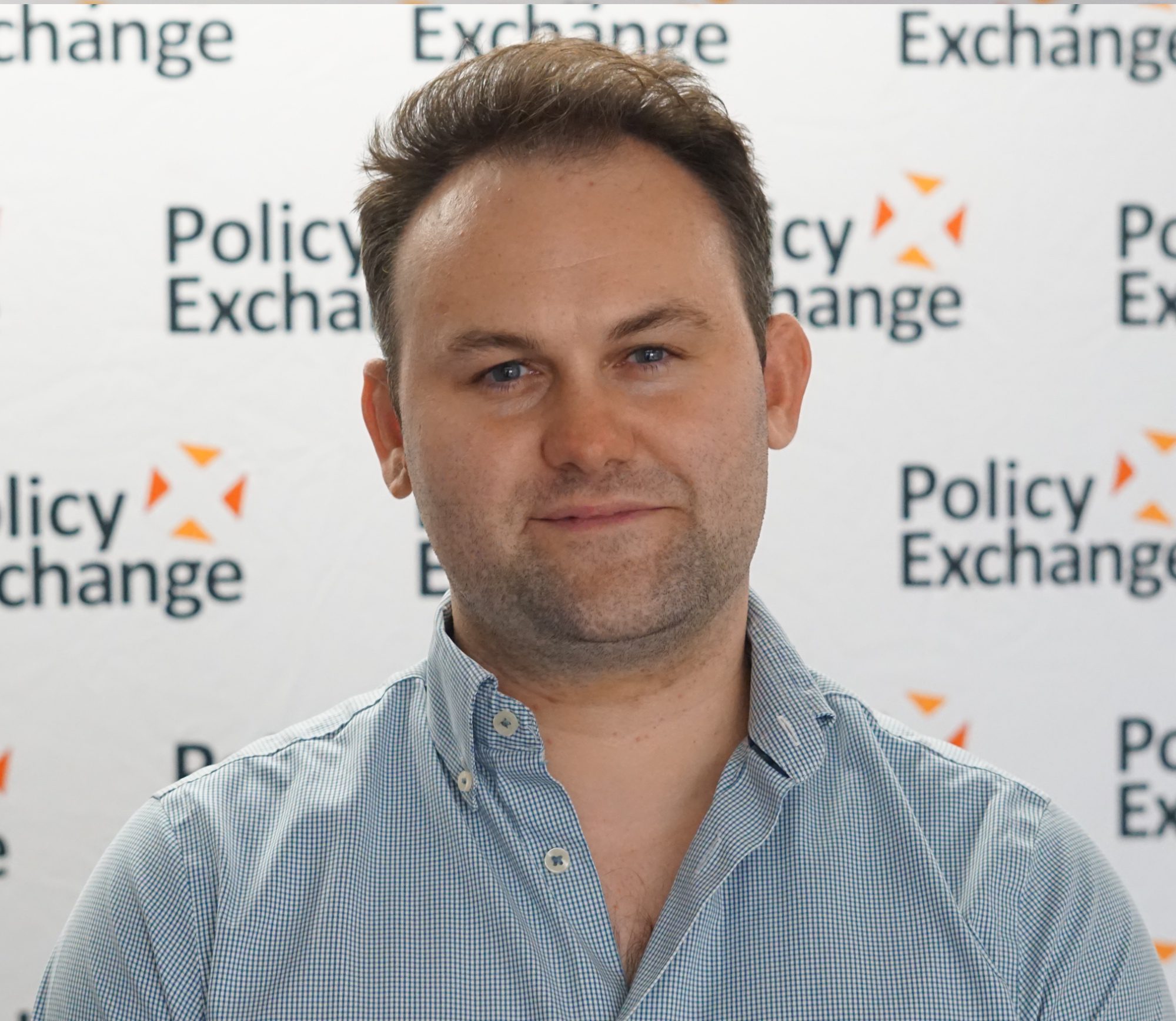
Dr Sean Phillips
Head of Health and Social Care

William Nicolle
Research Fellow, Energy and Environment.
Britain is already a global leader in health security. Take genomic sequencing for example: as of the end of May 2021, the COVID-19 Genomics UK Consortium had sequenced more than 490,000 viruses – roughly half of the total sequences uploaded to the global database. The UK is meanwhile the largest donor to Gavi, the global vaccine alliance and has been at the forefront of efforts to develop a suite of vaccines and therapeutics. The recent publication of the Integrated Review (IR) reaffirms the Government’s commitment to the WHO, with an increase in funding by 30% to £340 million over the next four years, ensuring the UK remains one of the largest contributors and most influential members.
There remains significant scope however for the UK to use the G7 Presidency to demonstrate greater leadership and to reform international pandemic preparedness for good. This article focuses upon one specific and significant area: the monitoring and management of zoonotic transmissions (spillovers of pathogens from animals to humans, as SARS-CoV-2 appears to have done).
The risks posed by zoonotic diseases ‘jumping’ the species barrier are severe. Almost all known pandemics, from influenza to COVID-19, are caused by microbes that originated in wildlife. An estimated 1.7 million viruses remain undiscovered in mammal and avian hosts, of which around 700,000 could be infectious to humans.
Tackling these spillovers was identified in the Prime Minister’s September 2020 address to the UN General Assembly as the number one priority in his five-point plan for global health security reform, yet the issue remains under-emphasised in international initiatives.
This week G7 health ministers have met in Oxford to explore ways in which vaccines and therapeutics could be rapidly developed and distributed to tackle a future pandemic. Yet there remains significant scope for the G7 to push a greater preventative approach, as well as this welcome attention being paid to future pandemic response.
Sweat the small stuff: build on the lessons of past pandemics
Having weathered past pandemics, the international community is well aware of how to prevent zoonotic pathogens jumping the species barrier; the challenge lies in monitoring high-risk areas and encouraging practice which limits transmission.
In every respect, closer collaboration between healthcare and conservation experts will be required. At a recent event at Policy Exchange which explored Britain’s future role in international health governance, the UK’s former Health and Foreign Minister, Jeremy Hunt called for the World Health Organisation to work with other UN agencies, such as the Food and Agriculture Organisation on a much more consistent basis in researching and managing future zoonotic outbreaks.
Domestically, there is already evidence of this shift taking place: the publication of the UK’s IR of international policy marks a clear move towards a more systematic thematic integration of international policy. As Policy Exchange recently set out, linking global health strategy with other policy areas, particularly security and environmental initiatives is of particular importance.
Here are three further steps the UK can take as President of the G7 to reform the governance of zoonotic spillovers, which build upon areas of emerging consensus as well as encouraging new alliances and means to prevent future pandemics:
A) Ensure the emergent monitoring and response system is truly global and integrated
The current system for monitoring and responding to pandemics was born out of the SARS outbreak in the early 2000s, which catalysed governments into agreeing collective measures.
Out of the current crisis, the international community is already looking to make this system both more comprehensive, through greater research and testing capacities, and agile, so it can more quickly respond to global health threats. For instance, the UK has suggested creating a new network of international zoonoses experts at a meeting of climate and environment ministers recently to deepen global expertise and research on zoonotic disease emergence. However, current proposals risk duplicating and fragmenting existing monitoring and response efforts. For instance, the UK’s proposals for a Global One Health Intelligence Hub, which seem to have been carried forward by the WHO and Germany, risk duplicating existing multilateral monitoring initiatives, such as the UN’s Tripartite Plus or the recent French proposal, PREZODE.
The UK has also recently confirmed its own Global Pandemic Radar which is likely to complement a ‘pandemic prevention institute’ being developed by The Rockefeller Foundation and the aforementioned Berlin-based epidemic intelligence hub. Yet whilst the WHO is playing a coordinating role between these three hubs, the question remains what the interplay between these individual institutions will be and how they will plug into a truly global network of experts and officials working in centres of excellence and on the ground in high-risk areas.
Through its presidency of the G7, the UK should push to ensure coherence in the aims and approach of this emergent global monitoring and response system. Additional centres of excellence, networks of professionals and other proposals will add to the expert capacity of the system, but also risk fragmenting and duplicating, potentially encumbering the global response. Closer to home, the organisation of the recently-launched new UK Health Security Agency (from the dissolution of Public Health England), will need to consider not just how it works with local public health officials, but also how the agency will also effectively plug into this emerging international architecture before its fully up and running in the Autumn.
B) Spell out responsibilities, backed up by rules with teeth
The current crisis highlights how the International Health Regulations 2005 (IHR), which set out the duties of countries to “prevent, detect and respond” to pandemics, fail to incentivise all governments to abide by their terms. Most governments have ratified the regulations, yet a minority of countries continue to undermine them.
G7 Leaders have previously confirmed their support of exploring “the value of a [new] global health treaty”, echoing a key recommendation made in Policy Exchange’s report Outbreaks and Spillovers, which called for a new Pandemic Preparedness Treaty. Concrete details of what would be included in such a treaty remain at large – specifically measures it may address any shortcomings of the IHR.
As G7 President, the UK should push for consensus on the need for (and provisions of) a new global health treaty. As previously argued by Policy Exchange, this future treaty must have some form of ‘teeth’ however in order to incentivise countries to adopt best practice with regard to domestic biosecurity. After all, if this pandemic has reaffirmed anything, it is that bio-insecure local actions can have global consequences. A key downfall of the present IHR regulations is the absence of measures of deterrence, such as sanctions for states and actors who fail to comply.
Moreover, the success of any international treaty rests on its ratification. A number of Indo-Pacific countries are identified as high-risk areas for zoonotic spillovers. As such, the UK could seek to leverage its soft power through the newly-minted ‘Indo-Pacific Tilt’ strategy, as set out in Policy Exchange’s recent report, to incentivise countries to ratify any future health security agreements, and making some partnership discussions conditional upon it.
C) Drive health security through conservation
Past and present pandemics show that zoonotic pathogens are most likely to jump the species barrier when humans impose on high-risk ‘reservoirs’ of zoonotic disease, such as clearing untouched forest areas for agriculture, or trading in exotic wildlife. As these processes continue, the risks of future pandemics compound: five new diseases emerge in people every year, any of which could have pandemic potential.
Global conservation efforts offer a strategic opportunity to tackle these risks while protecting biodiversity. For instance, at least 50 countries have pledged to protect 30% of the world’s land and oceans by 2030, with more countries likely to join the pledge at the Conference of the Parties 15 to the Convention on Biological Diversity (CBD) later this year. Many of the high-risk areas for zoonotic spillovers also contain highly valuable habitats and species, particularly in India and the East of China. The UK could suggest that these two agendas are aligned, so that pledges to conserve 30% of land focus on areas that have both high biodiversity value and zoonotic spillover risk, delivering on an environmental agenda as well as reducing the risk of future pandemics.
Don’t waste a crisis
The G7 summit is being held at a critical juncture in the COVID-19 pandemic, where Governments are beginning to more deeply assess its long-term social and economic impacts. The German health minister, Jens Spahn, has recently called for a renewed emphasis in pandemic preparedness as states consider the international apparatus required to avoid repeat events. Using its G7 Presidency, the UK should build upon this international momentum and push for pandemic preparedness strategies which look to to prevent their emergence all together, rather simply controlling them after they have emerged.
The current crisis provides an opportunity for change and for the UK to build consensus with its closest international partners. It’s an opportunity that shouldn’t be wasted.


